When I arrive at Repair CafĂ© É«É«Ŕ˛â€™s pop-up tent at Withrow Park Farmers’ Market on a humid Saturday morning, it’s clear I’m not the only one with broken stuff lying around my home.
A family is having a desk lamp repaired while a volunteer examines a broken button maker. I present fixer Tim Murphy, who’s volunteered at Repair CafĂ© É«É«Ŕ˛ for 12 years, with a broken coffee grinder. He surveys the broken lid carefully before telling me he can put it back together with epoxy. Not only is this weeklyĚýpop-up free, it could save me from spending $21 on a new grinder.
Our society has an overconsumption problem, and it comes at a high cost. In 2024, Canadians spent $45.3 billion on clothing, and in just the first quarter of 2025, we spent $11.9 billion — that translates to around $287 per person. A 2022 study from the University of Waterloo reported that Canadians produced close to a million tons of electronic waste in 2020. Meanwhile, Canadian electronic and appliance retailers sold $20.5 billion worth of products in 2022.
At Repair CafĂ© É«É«Ŕ˛ and other free repair workshops across the city, volunteers are helping people save hundreds of dollars by giving used items new life, from clothing and jewelry to small appliances, furniture and toys.
Wai Chu Cheng co-founded grassroots community group Repair CafĂ© É«É«Ŕ˛ with Fern Mosoff and Paul Magder in 2013, inspired by the Repair CafĂ© InternationalĚýFoundation in Amsterdam, started by a former journalist to encourage sustainability at a local level.ĚýLast year, Repair CafĂ© É«É«Ŕ˛ hosted 140 events in 40 different locations across É«É«Ŕ˛. During one event at the St. Lawrence Market, 120 visitors brought 150 items to be fixed. Cheng says around 80 per cent of those items were diverted from landfills, which means they were fixed or their owners were given advice around how to reuse them. You can find a list of upcoming repair cafes at Repair CafĂ© É«É«Ŕ˛’s website, .
Cheng has seen people bring in “toasters, lamps, fans, blenders, vacuum cleaners, jeans that need mending and zippers fixed, shirts — everything that you can think of,” she says, adding, “you can definitely save money.”
Before Murphy begins working on my coffee grinder, he focuses on trying to fix a $75 hair trimmer that won’t charge properly. It belongs to Sameer Mawani, a É«É«Ŕ˛ resident who discovered Repair CafĂ© É«É«Ŕ˛ last summer while strolling by Riverdale Library. Since then, Mawani tells me, volunteers have fixed his juicer and rice cooker, and repaired multiple pieces of his clothing. I ask him how much money he thinks he’s saved through having these items fixed for free. “Probably around $250,” he says.
Over on Dundas St. West,Ěýart director Cameron Morse has brought free “Mending Nights” to Gray’s,Ěýa retail, gallery and social space just west of Dufferin Ave.ĚýThey run once a month from 7 p.m. until 9 p.m., with music playing and glasses of wine available for purchase. Patrons can decide how involved they want to be, Morse says. “If you bring a piece of clothing, we can either tailor it or fix it for you, or we can teach you how to do it yourself,” he says.
Seamstresses and designers from across the city (including Maxime Cadena-ChercoverĚýof slow-fashion brand Sagradesa as well as influencer Charlotte Rose) volunteer their skills. “They’re top-quality tailors basically, because they are making dresses every day,” Morse says.
Morse made Mending Nights free knowing that cost would be the biggest barrier for potential attendees. Some of the most common items he sees are jeans with holes and socks that need darning, but he’s also seen some very high-fashion items fixed. In the past, attendees have brought in pieces from luxury fashion houses, including a puffer jacket from Balenciaga. “There’s always a way to be fashionable without having to go buy new, expensive stuff,” Morse says.
Once, in Montreal, someone showed up to Mending Night with a wedding dress. The bride bought it second-hand and it didn’t quite fit. Morse and his fellow volunteers altered it on the spot. “We just tweaked it a bit,” he says. Wedding dress alterations typically start at around $50 and can cost hundredsĚý—Ěýbut this session was free.Ěý
Today at Repair CafĂ© É«É«Ŕ˛, Mawani is hoping to surpass $300 in savings. Once Murphy finishes an internal cleaning of the hair trimmer, Mawani asks if they can plug it into the charger to see if it will work now.Ěý“I really want to ring the bell,” he tells me, referring to the mini celebration that occurs whenever something is fixed. The trimmer still won’t charge properly, but Mawani isn’t too discouraged; now he knows he can save some money by trying to find a new power cord instead of replacing the grooming tool altogether.
When it’s my turn, I watch Murphy mix epoxy on a recycled yogurt lid using a wooden barbecue skewer. He gently presses the broken piece of the coffee grinder back into place and secures it with green tape, telling me to let it dry for a day before using it. I thank Murphy and begin to walk away, but he calls out to me. “You forgot to ring the bell!” As we celebrate the moment, I realize I’m getting the same kind of rush I usually get when buying something newĚý— except I just saved 20 bucks.

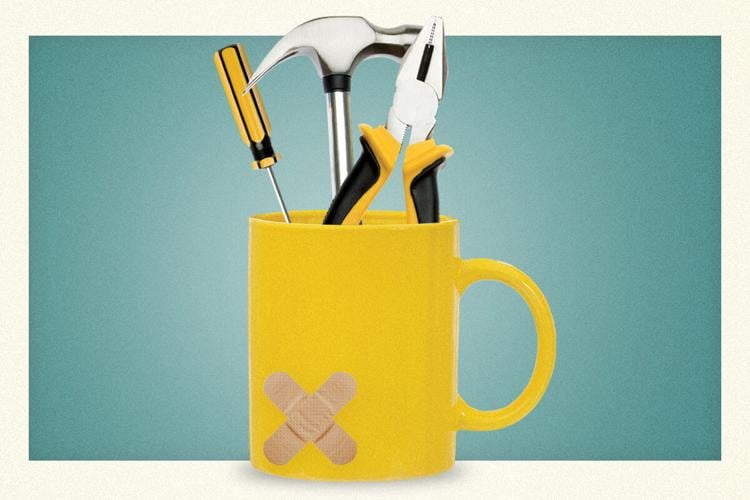
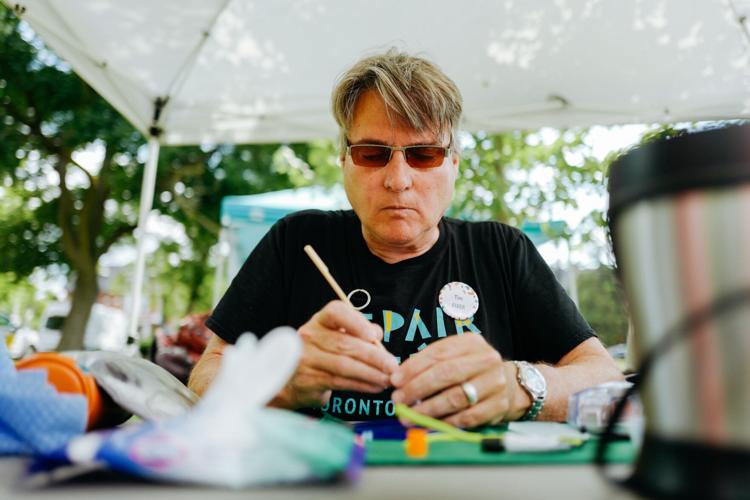
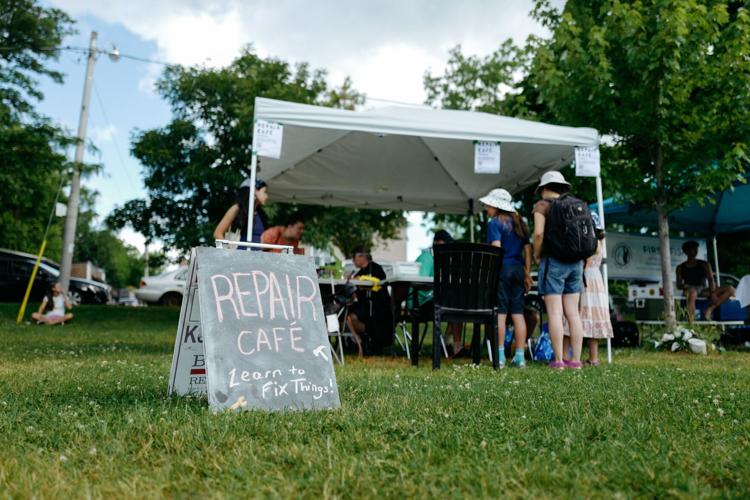
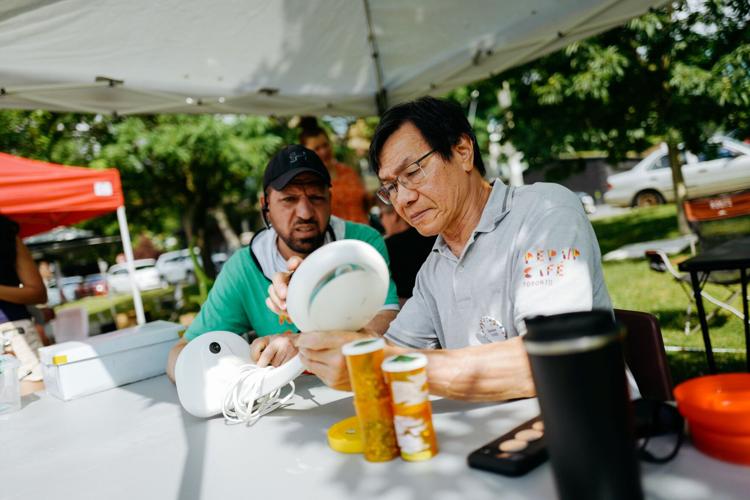
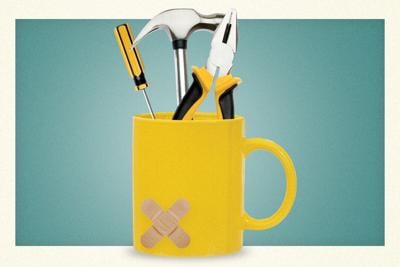


























To join the conversation set a first and last name in your user profile.
Sign in or register for free to join the Conversation